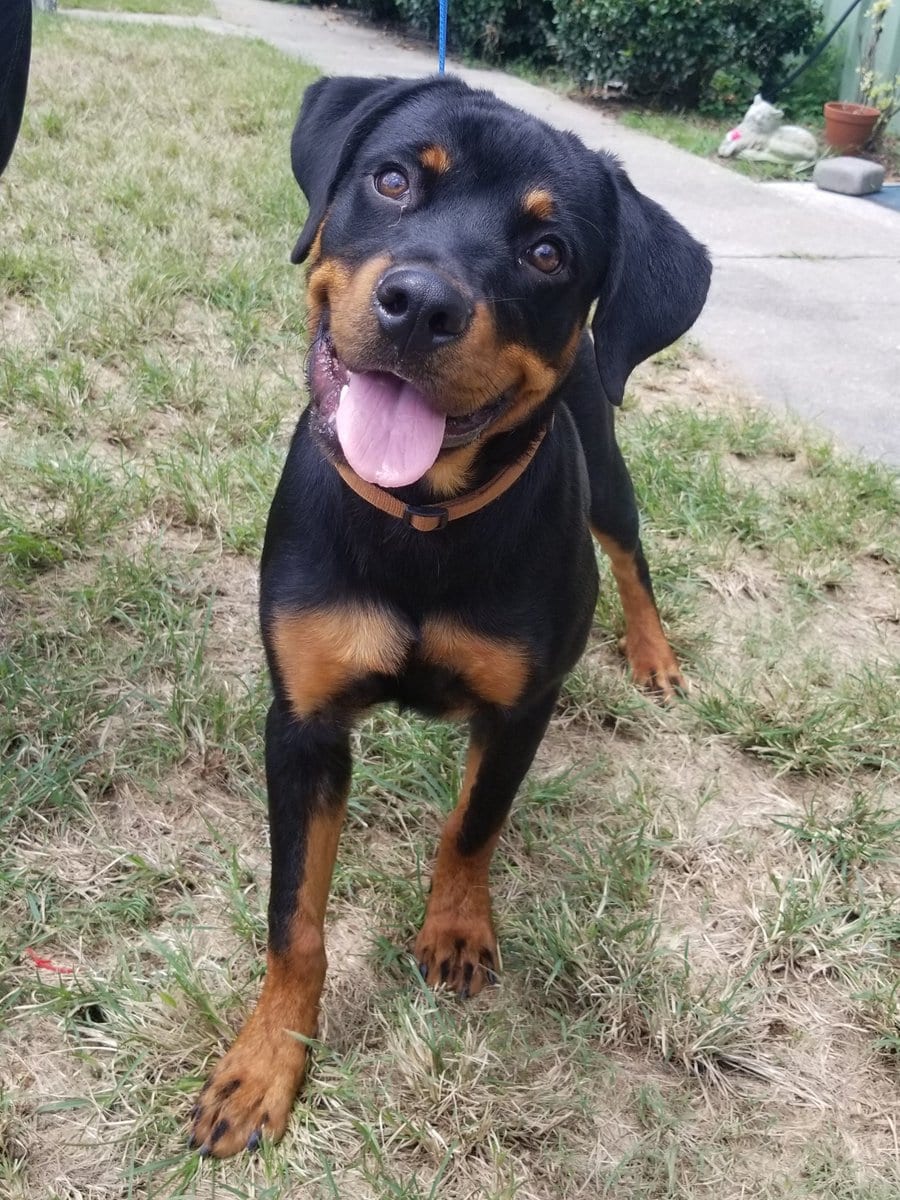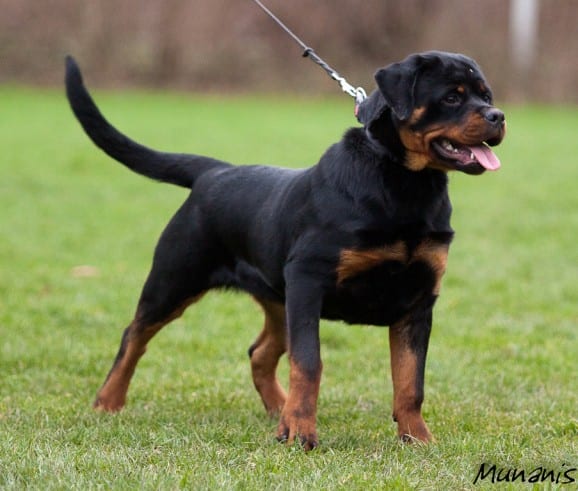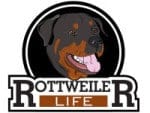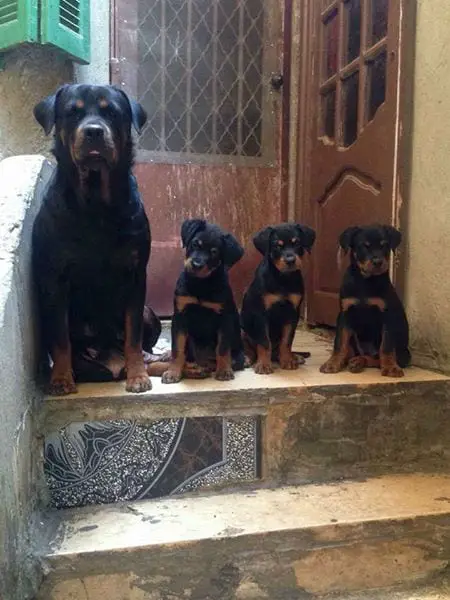Rottweiler is one of the most famous dog breeds. Owning a Rottie is easy but what is difficult is to keep track of their health, height, and training. If you have a 6-month old Rottweiler puppy, you should know how they are doing. You should know whether or not your care is sufficient. But you must remember that these are going to be estimates and not exact figures. Every dog is different and so you have to treat them as such.
READ: You Need To Follow The Growth Chart Of Your Rottweiler To Ensure Their Good Health
1. Estimated Height And Weight Of A 6-Month Old Rottweiler
 Rotties are robust and muscular dogs hence their build is medium-heavy. They are also a relatively slow-growing breed. At 6 months of age, they weigh generally 63 lbs to 70 lbs. Remember female dogs will weigh less than the males.
Rotties are robust and muscular dogs hence their build is medium-heavy. They are also a relatively slow-growing breed. At 6 months of age, they weigh generally 63 lbs to 70 lbs. Remember female dogs will weigh less than the males.
The estimated height at this age is about 23 to 23.5 inches. Note that Rottweiler is not a very tall breed. About two-thirds of their adult height is attainted by 6 months of age.
All this, of course, is not ideal or average in any sense. You can keep track of your 6-month old puppy’s height and weight by taking monthly measurements.
2. Training A 6-Month Old Rottweiler
It is ideal to start training your pup as soon as possible. But if you didn’t start very early, you can start now. With growing age, dogs learn slower but eventually, they do learn. Rottweilers are intelligent and will learn soon but you have to be patient. Don’t use physical force or even shout if they do wrong. It instills fear in them.
Also, giving them treats is a tricky part because Rottweilers tend to gain weight fast. So be careful and offer treats in small amounts.

Realize that your pup is an adolescent at this stage and will be difficult to tame. You have to be loving and patient with them to make them grab things quickly.
READ: Have You Got A 1-Year-Old Rottweiler At Home? Here’s How You Can Deal With Their Excessive Energy
In case you feel like your pet is very under-weight or is way shorter, you should get them to a vet. Such conditions may arise out of a lack of a balanced diet or some ailment. Getting your pup treated properly and giving them proper nutrients and medicines (if needed) is important.
Lastly, don’t grow anxious over your 6-month old Rottweiler not being the exact height and weight as mentioned above. Don’t try to make them grow faster as it will affect their health negatively. Love your pet for what they are and not only for their outer appearance. Keeping them healthy and happy should be your only goal.


